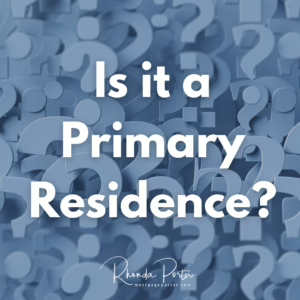EDITORS NOTE – 11/22/2014: Oh the joys of writing a mortgage blog… guidelines change constantly. Information in this post is not current. Please check out this more recent article on rental income for conforming mortgages here. And if I can help you with your investment (or any) property) in Washington state, please contact me!
Rental income is generally not fully credited when qualifying for a mortgage. Lenders will “discount” the rent because of the cost and risk associated with owning investment property. If someone does not have at least two years history as a landlord, they may not be able to use the rental income at all and may have to qualify with the full mortgage payment.
Conventional financing allows a qualified investor to receive credit for 75% of the gross rental income. From this figure, property taxes, insurance, home owners association dues and any mortgage payments are deducted to create the amount of rent (positive or negative) that the lender will use for qualifying purposes.
For example, a property has a $2,000 total mortgage payment (PITI) with no HOA dues and receives rental income of $2,000 per month.
$2,000 rental income x 0.75% = $1,500. $1,500 less the mortgage payment of $2,000 creates a net rental income of negative $500 per month. This would be factored as a debt and not a credit or “breaking even” on the loan application for qualifying.
Of course if there are multiple investors involved, the net rental income is split accordingly.
FHA does not have the same two year history requirement for existing rentals as conventional loans do. The vacancy factor in the Seattle area is 15% which means that 85% of the rent is allowed to be factored as income. FHA loans may use future rental income (no 2 year history) when converting an existing home into a rental if the borrower is being relocated or if there is enough equity in the subject property.
To document rental income, be prepared to provide tax returns and signed lease agreements. Lenders will use the net income from your tax returns.
When you have rental properties, be prepared to have additional reserves (savings) required based on how many properties are owned.
If you have questions about qualifying for a mortgage for a home located in Washington State, please contact me. If you would like a personal rate quote from me for an home located in Washington state, click here.

 Every so often, someone will be interested in financing for a home they will not be living in 100% of the time…they want the best rate which is “owner occupied”. It’s crucial to know the difference in your lenders eyes and to be completely upfront so you avoid committing fraud. Bottom line, the property and situation needs to make sense to the underwriter. Here are some basic definitions:
Every so often, someone will be interested in financing for a home they will not be living in 100% of the time…they want the best rate which is “owner occupied”. It’s crucial to know the difference in your lenders eyes and to be completely upfront so you avoid committing fraud. Bottom line, the property and situation needs to make sense to the underwriter. Here are some basic definitions:






Recent Comments